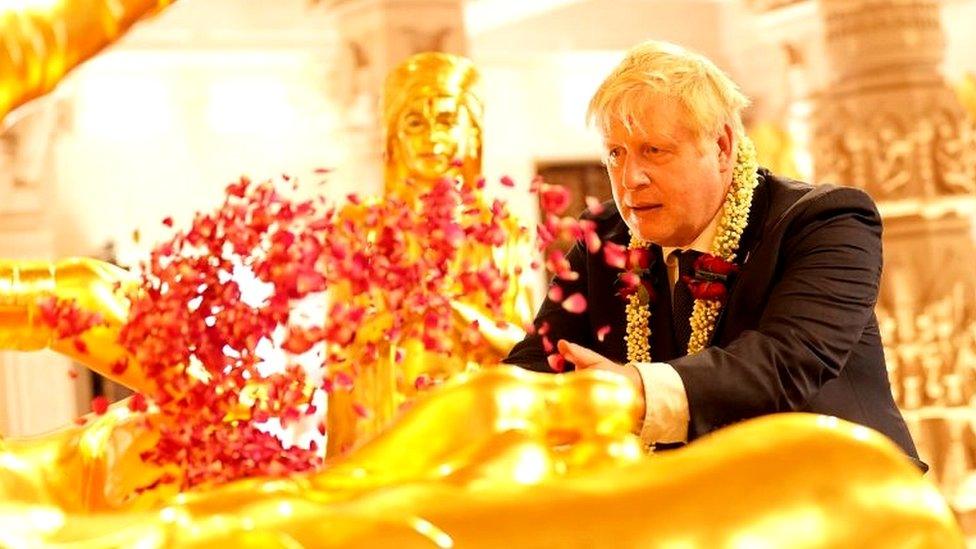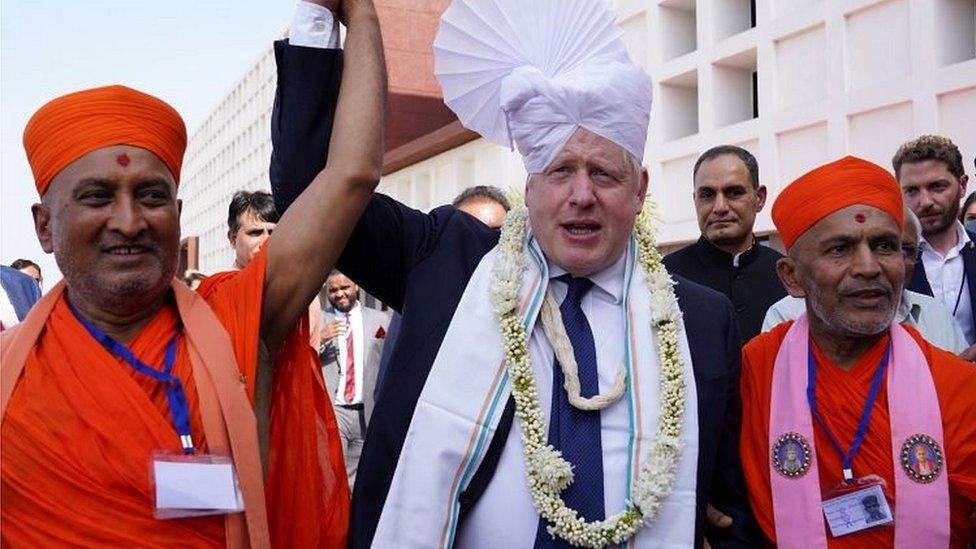Boris Johnson's India visit takes place against partygate backdrop
- Published
The BBC's Ben Wright quizzes Boris Johnson on Partygate, fines and resignation
Boris Johnson has barrelled into Gujarat, the first British prime minister to visit the western Indian state, and the first stop on a frenetic two-day trip.
Why Gujurat? Because a large number of Gujuratis live in the UK and it's the home state of India's PM Narendra Modi.
On the drive from Ahmedabad's airport to the city centre, there were miles of billboards celebrating the visit, and crowds waving Indian and UK flags.
This is not the sort of enthusiasm Boris Johnson has enjoyed much recently, as Tory MPs grouch and grumble about the lockdown-breaking party saga that drags on and on.
They aren't angry enough to try to depose Mr Johnson (there's also a war in Ukraine and a shortage of obvious replacements champing at the bit), but his troops back home wait for the next update from the Met Police with weary resignation.
Out here in the blistering Indian heat, the prime minister is giving every impression of not caring too much about what people back home are saying about partygate.

Boris Johnson is hoping to boost trade and defence ties with India
On the plane over he waved away questions about whether he'd resign if the fines piled up.
He insisted he would lead his party into the next general election.
Focusing on trade deal with India
I've written this on a Chinook helicopter whisking the PM and his team to open a remote JCB factory.
Trumpeting business links between the UK and one of the biggest economies in the world is a big theme of the trip.
So too is Ukraine and Boris Johnson was clear he would tread gingerly in his talks with Mr Modi in Delhi on Friday.
India's long-standing neutrality and abstentions on UN votes condemning Russia's invasion may dismay the British, but they won't say so publicly.
Instead, Boris Johnson is hoping to wean India off its reliance on Russian energy and Russian military hardware.
The talks in Delhi will certainly cover defence; it's a market into which the UK wants to encroach further.

Boris Johnson is visiting India
For Mr Johnson, this visit is a chance to look the statesman and enjoy the distraction provided by the dancers and drummers who appear at every turn.
What does Narendra Modi make of it all? Is he as confident as his opposite number that a free trade deal could be done by the end of the year? There won't be a joint news conference to find out, because India's PM doesn't do them.
Whether Boris Johnson will raise concerns about India's press freedom, communal relations or protections for minorities isn't clear.
The UK needs India as an economic and military ally more than ever.